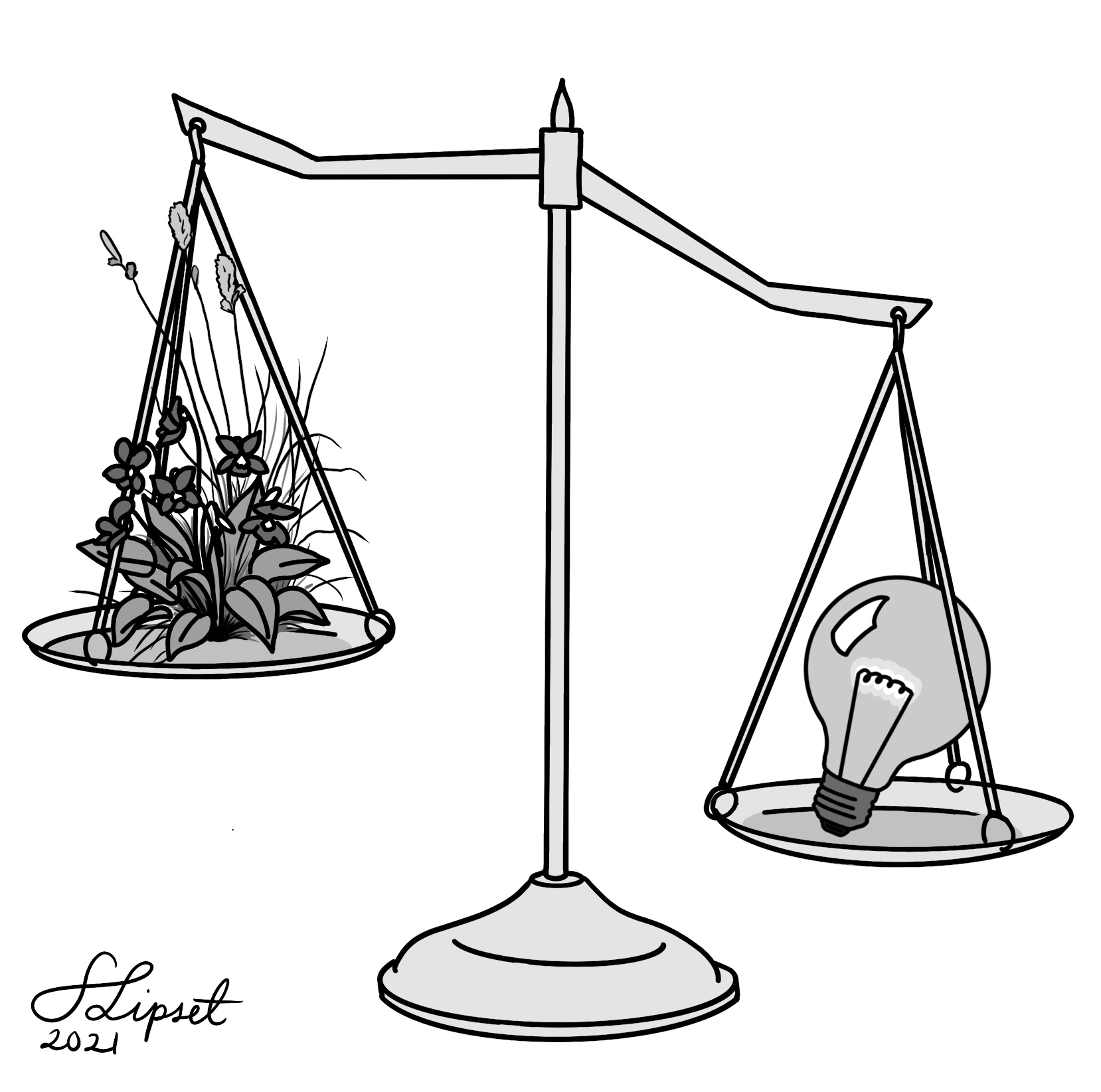Our environment is the common good
February 12, 2021
 This
piece represents the opinion of the author
.
This
piece represents the opinion of the author
.
 Sophie Lipset
Sophie LipsetIn December, Bowdoin received approval from the Brunswick Planning Board to cover at least 15 acres of a state-listed critically imperiled natural community with solar panels. The resulting loss of sandplain grasslands, documented in only four places in Maine, greatly diminishes the environmental benefits of Bowdoin’s otherwise laudable investment in renewable energy.
This habitat destruction by the College depends upon a little-publicized exemption from state regulations quietly obtained by the Midcoast Regional Redevelopment Authority, an organization that helps transition base properties from military to civilian use. Maine would normally require that impacts to such a rare habitat be avoided, which is something the College could voluntarily do here. With the exemption, it is up to the College and the Bowdoin community alone to care about this imperiled habitat and the endangered and threatened species which depend upon it.
The College instead faces a false dichotomy, in which different values are needlessly placed in competition such that only one can win. Bowdoin could avoid this choice between two global environmental crises—climate change and rapidly disappearing biodiversity—both of which the United Nations deems are in grave peril and must be prevented in order to maintain human sustainability.
Bowdoin retains approximately 80 undeveloped acres on this site, many of which do not include the rare habitat and thus could avoid most of the worst habitat destruction. Bowdoin’s hardscape of acres of parking lots also contains no rare habitats or species, but is somehow not preferred for solar over Maine’s imperiled, vulnerable natural communities.
Instead, the College’s response following the approval is to “minimize” the harm the solar array will cause. Bowdoin claims that somehow raising the solar panels will help, but this is a notion that any backyard gardener will reject. Sandplain grasslands depend upon unshaded sun, pollinators and consistent rainfall. None of these things will be available once the panels are installed. To measure the resulting degradation to the imperiled natural community, Bowdoin need look no further than under the smaller solar array they already constructed over the mapped habitat on this site. The critically imperiled natural community is no more.
In a press release, Bowdoin states that the site plan was created “in consultation with the Maine Natural Areas Program, (MNAP)” creating an impression of state agency approval. In fact, Bowdoin pushed ahead with a Planning Board vote despite MNAP stating that avoiding the sandplain grassland altogether was the environmentally preferred practice.
The College also glowingly points to student involvement in the site. Do students know that Bowdoin is taking advantage of an unheard of exemption from basic environmental stewardship, and that endangered species’ habitat could be protected while still providing the green energy benefit? The opportunity to monitor a critical habitat as it is being lost would seem little comfort for students facing what the United Nations terms grave impacts to the Earth’s ecosystems.
For me, Bowdoin’s choice particularly rankles due to my role in the College’s ownership of this land. As a Town Councilor in 2007, I took part in approving the former Naval Air Base’s early redevelopment plans. The property Bowdoin was given—at virtually no cost—was initially prioritized for town conservation. This property is part of Brunswick’s former historic Commons. I supported the College’s request for conveyance “for educational purposes,” never dreaming that part of a Bowdoin education could include avoidable destruction of a critically imperiled natural community and endangered species. Would Brunswick be supportive of that decision now, with one of our town and state’s rarest habitats harmed by Bowdoin?
The College is unfortunately making climate responsibility the enemy of vital habitat protection; a false choice. The challenge for us today is to be fully informed and fully responsible for addressing all of the many environmental harms that we humans have caused, and not to cause additional harm when we know better. Bowdoin—proudly reminding us of their commitment to the common good—could strive to protect biodiversity while producing the climate dividend the College so rightly seeks.
It still can.
Jacqueline Sartoris served as a Brunswick town councilor from 2000-2007 and is a former Senior Planner with the Maine State Planning Office.

Comments
Before submitting a comment, please review our comment policy. Some key points from the policy: